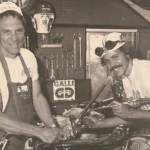Imagine developing a serious illness, seeking medical care, presenting your Medicare card and receiving it without denials or appeals or copays or deductibles. When your healthcare team suggests a medication that will likely cure your condition, you receive it at no cost.Such a scenario describes a system that would be more fair and empathetic, and less expensive overall. It would also be able to gather data about the effectiveness of diagnostic and therapeutic interventions, allowing more effective care driven by science, not the whim of “your” insurance company. It would, above all, be a patient-centered system.
It is becoming more obvious each day that the American people desire “improved Medicare for all” when they understand how it works. Yet many believe it cannot be accomplished, that we need gradual reforms.
Bill Frist, former U.S. senator, surgeon and healthcare entrepreneur, writing in the Washington Post Monday morning, talks about “stabilizing our health-care system.” I recently attended a webinar from Physicians for a National Health Program that offered arguments against such incrementalism — recall that this group is composed of physicians longing for fewer impediments to care for everyone — and, since I haven’t written about healthcare recently, it seems like a good opportunity to do so.
Some points I made previously bear repeating. Your feeling that “you are tired of paying for somebody else” and the belief that you can actually pay for your own healthcare are just plain silly. Any way we look at it, if one of us comes down with a serious medical condition, our care will be paid for by others, either directly through Medicare, Medicaid or health insurance, or indirectly, by various kinds of subsidies. Don’t forget that every person has the potential of requiring the same care.
It cannot be predicted; you cannot tailor your insurance policy to fit your needs because it is impossible to predict what your needs will be. How difficult is it to understand that everyone needs basic healthcare, just like we need roads and fire departments, and police departments? That we don’t need insurance, we need healthcare.
Some of us will pay more, some will pay less, some won’t pay anything, but it is easy to figure out the easiest, least expensive way to accomplish this: improved Medicare for all! Whether or not you are a fan of Bernie Sanders, as a voter and potential patient, you should read his proposal for Medicare for All at berniesanders.com and consider its ramifications.
Many of you will not be surprised at the recent experience of my wife when she underwent knee-replacement surgery. Suffice it to say that there was no part of her care that was actually geared to her. Everything was done for the convenience of the insurance company, the doctors, the hospital.
One of my HSAs from prior employment even refuses to pay for prescriptions at our local pharmacy; they want the pharmacy to register and jump through hoops so they can pay for prescriptions with my money.
Although I know the history of healthcare in the U.S., I still cannot help but shake my head and wonder how we have allowed ourselves to be so manipulated, abused and robbed by the “healthcare industry.”
In a rich country such as ours, healthcare must be a human right. Medicare was implemented smoothly in 1965 so it should be much easier to implement a similar computerized system now for every citizen. Since we already pay for care for everyone, in one way or another, wouldn’t it make sense to do it up front and transparently? Publicly funded? Not beholding to insurance companies with large overheads and huge profits? Not tied to employment?
Yes, it will be expensive, but probably less so than our present, bloated system. No, it will not be perfect, but it will be a lot easier to aspire to greatness. It is time to demand that our elected representatives work to create a system that is designed for the benefit of all of us real and potential patients.
Dr. Kluzak, an Idyllwild resident, is board certified in Anatomic Pathology, Obstetrics and Gynecology. He also is a freelance photographer for the Town Crier.










